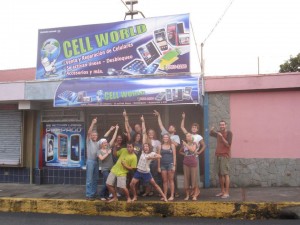by: Courtney Remacle
By nature, I find it difficult to be an optimist. In fact Click here, sometimes at night the weight of despair settles in my chest and pins me to my bed and I find it nearly impossible to go to sleep, much less get up and go about the daily tasks that occupy so much of our time and so little of our existence. A key component of the sustainability movement seems to be hope for the future—if there was no hope, why would we bother recycling, planting gardens, abandoning our cars and trying to become better people, better occupants of this crowded, tired planet?
And yet so often the actions that so many of us undertake to try to be better stewards, caretakers, and neighbors get wrapped up in the drudgery and monotony of modern life—I don’t feel like I’m helping to save the planet when I take out the recycling, I don’t feel like a better person when I ride my bike, and I don’t feel like I’m making any real change when I scavenge wild apples instead of buying them from the agro-industrial machine. The things that are supposed to make us feel good and like we’re “making a difference” become part of our daily routine and we—I—don’t feel any better or any different while we’re doing them. And though I undertake these obligatory “save the planet” actions, I don’t see the world changing around me and most days I feel like what I do doesn’t matter.
Still, even in light of the drudgery and monotony of our everyday lives, many of us continue to lead meaningful, inspiring lives. So many people still have hope and create things that are beautiful and form relationships that create change in their lives and communities. In Radical Hope: Ethics in the Face of Cultural Devastation, Jonathan Lear writes
“At a time of radical historical change, the concept of courage will itself require new forms. This is the reality that needs to be faced–the call for concepts–and it would seem that if one were to face up to such a challenge well it would have to be done imaginatively. Courage, as a state of character, is constituted in part by certain ideals–ideals of what it is to live well, to live courageously. These ideals are alive in the community, but they also take hold in a courageous person’s soul.”
Lear’s call for new concepts of courage really appeals to me. Maybe the concept of courage we need today is the courage to carry on in the face of devastation and disaster. The kind of courage that isn’t blind optimism or irrational hope, but the kind where you carry on and live deeply even though there isn’t any convincing evidence that it will change the world, but maybe it can help just a little. Maybe it’ll help someone else, and very likely it will help you. I think that believing things can be better, even though you are presented with little evidence to the contrary, takes a special kind of courage, one that we could all probably use in this day and age.
–
What gives you hope for the future? What gives you the courage to carry on in the face of seeming unsurmountable odds?

